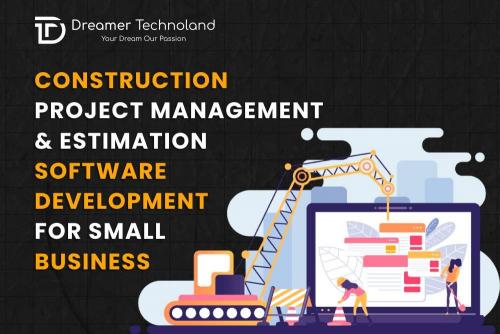What Do Contractors Use for Project Management?

When it comes to managing the resources, there are limited options available in the current market. Therefore, you need robust construction project management software that ensures everything goes smoothly at a construction site. Contractors rely on a combination of methods and tools for effective project management, but project management software has become increasingly prominent. In this blog, we will breakdown the whole approach used by the contractors in detail. Read till the end to gain a significant understanding of the same.
Let us dive into the details about the same.
Traditional Methods
Spreadsheets: Simple spreadsheets are still used for basic project scheduling, task management, and cost tracking. However, spreadsheets can be cumbersome for complex projects, prone to errors, and lack collaboration features.
Whiteboards and Paper Schedules: These visual aids can be helpful for basic planning and communication on smaller projects. However, they lack flexibility and become impractical for managing intricate details or large projects.
Email Communication: Email is a common communication tool, but it can lead to scattered information and difficulty tracking communication history, especially on complex projects with multiple stakeholders.
Modern Project Management Solutions
Construction Project Management Solutions: These construction project management solutions are specifically designed for the construction industry and offer a comprehensive suite of features to streamline various project management aspects.
Popular options include Procore, Buildertrend, PlanGrid, and CoConstruct.
These construction project management solutions offer functionalities like:
Project scheduling and task management with Gantt charts, calendars, and dependency tracking.
Document management and collaboration tools for centralized storage and easy access to project documents, plans, and specifications.
Budget tracking and cost control features to monitor project finances, identify potential cost overruns, and generate reports.
Field reporting and daily logs for capturing progress updates, photos, and other site-related information directly from the job site using mobile apps.
But you should only invest in personalized construction project management software because it is the perfect way to streamline operations and boost revenue.
Choosing the Right Approach
The ideal project management approach depends on the size and complexity of your construction projects, your budget, and your team's technical expertise.
Smaller projects: Spreadsheets or whiteboards might suffice for basic planning and communication.
Larger projects: Construction project management software is highly recommended for its comprehensive features, improved efficiency, and enhanced collaboration capabilities.
Additional Considerations
User Adoption: Select software that is user-friendly and easy for your team to adopt. Training and ongoing support are crucial for successful software implementation.
Scalability: Choose software that can grow with your business and accommodate the demands of larger projects in the future.
Integration: Consider how the construction project management integrates with your existing project management tools and business systems.
By combining traditional methods with modern project management software solutions, contractors can improve communication, streamline workflows, optimize project delivery, and achieve successful project outcomes.
What is Construction Project Management Software?
Construction project management software is a digital toolbox designed to streamline and centralize all the various tasks involved in running a successful construction project. Imagine a comprehensive hub that integrates planning, communication, documentation, and progress tracking functionalities – that's what construction project management software offers.
Here's a breakdown of the key features and benefits of construction project management solutions:
Core functionalities:
Project Scheduling and Task Management: Break down projects into manageable tasks, assign them to team members, and track progress with Gantt charts, calendars, and visual timelines.
Document Management and Collaboration: Store and share project documents like blueprints, plans, specifications, and contracts in a centralized location accessible to all authorized personnel. This eliminates confusion over outdated versions and ensures everyone is on the same page.
Budget Tracking and Cost Control: Monitor project budgets, track expenses against allocations, and identify potential cost overruns early on. Software can also help generate reports and forecasts to optimize project finances.
Field Reporting and Daily Logs: Enable field crew members to submit daily logs, record progress updates, and capture photos directly from the job site using mobile apps. This improves communication and transparency between field and office teams.
Communication and Team Management: Facilitate communication between project stakeholders, subcontractors, and clients through built-in messaging tools, task comments, and discussion forums.
Summary
Overall, construction project management software is an essential tool for contractors of all sizes. By leveraging its features, construction companies can improve project outcomes, streamline workflows, and gain a competitive edge in the remodeling industry.
Post Your Ad Here
Comments